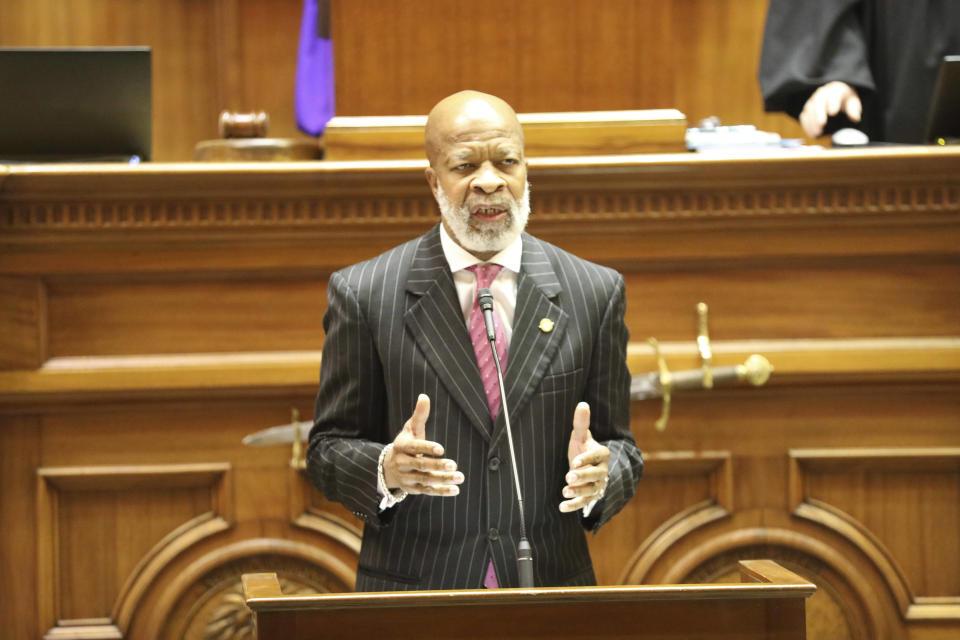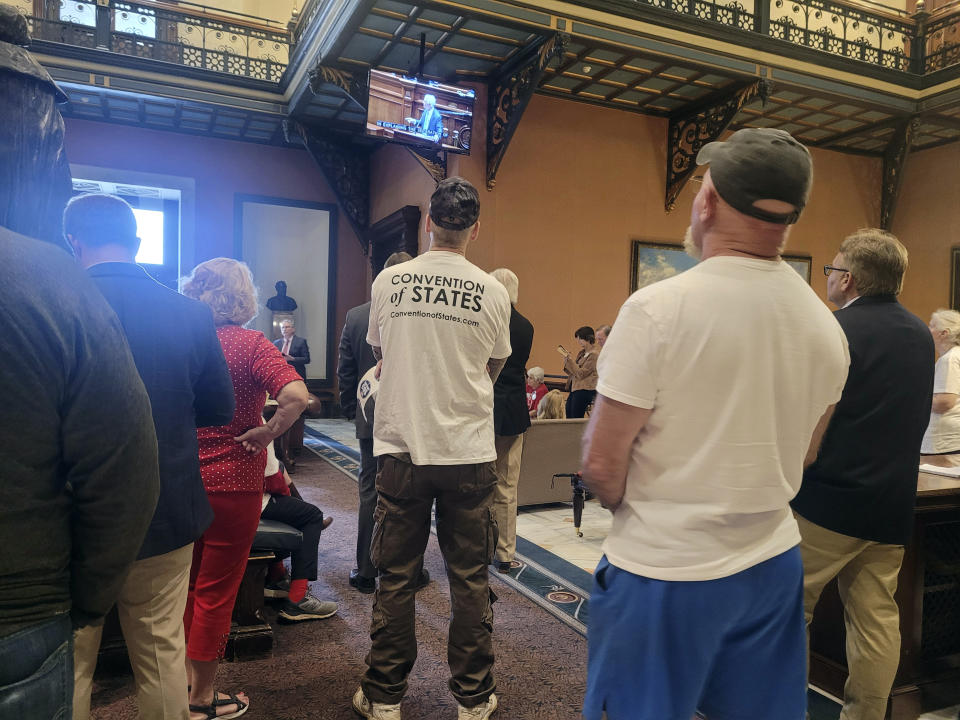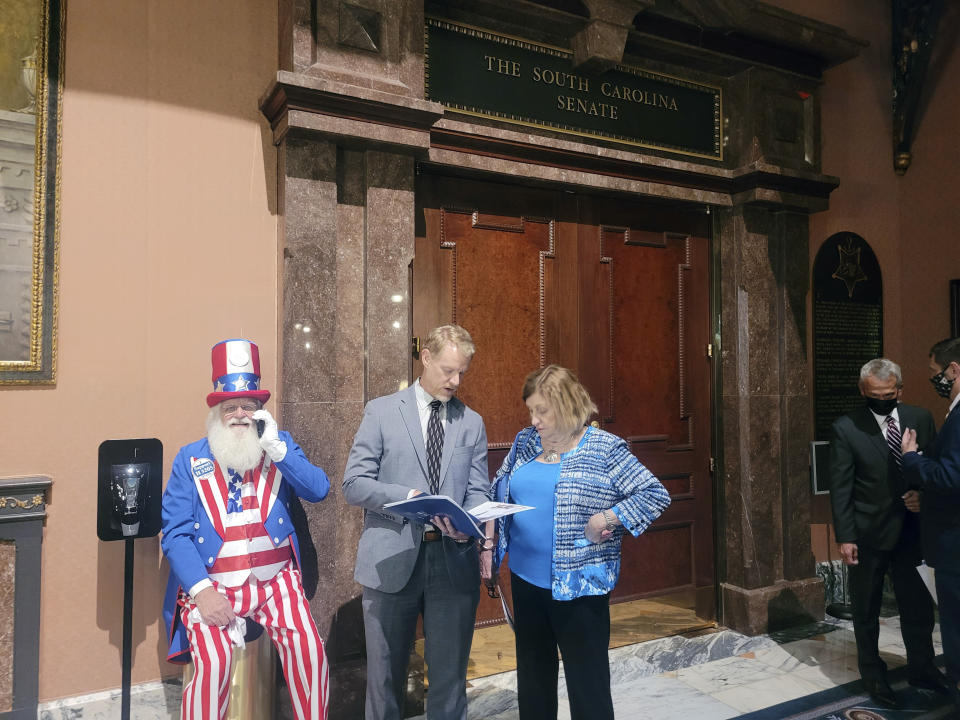South Carolina Senate OKs call for constitutional convention
COLUMBIA, S.C. (AP) — The state Senate approved Wednesday a proposal that would add South Carolina to a list of states calling for a convention to propose specific amendments to the U.S. Constitution.
Every African American senator voted against the proposal, saying they feared the national meeting could gut protections their ancestors have had to fight for over two centuries.
Nearly 20 states have passed similar measures. The U.S. Constitution requires two-thirds of states, or 34, to call for the convention.
The 27-13 vote by the South Carolina Senate gave key approval to the proposal that supporters said would limit the convention to a few items — spending checks on the federal government, limiting the federal government’s jurisdiction and power, and setting term limits for Congress.
Two Republicans nervous the convention could go rouge and take up amendments that could eliminate the right to bear arms joined with all but one Democrat voting against the bill.
Black Sen. Ronnie Sabb had his own worries thinking about the original, and so far only, constitutional convention in 1787. The Founding Fathers did not ban slavery and counted slaves, who made up most African Americans, as three-fifths of a person despite the Declaration of Independence 11 years earlier proclaiming that “all men were created equal.”
“It takes me back to the beginning, when every man wasn’t considered a man constitutionally,” said Sabb, a Democrat from Greeleyville.
Sabb and other Black lawmakers worried a convention could strip away rights to free speech, the prohibition of slavery and the guarantee of full citizenship and rights to anyone born in the country.
“Why are we willing to risk this experiment in a democracy on an experiment in a convention?" Sabb said.
The South Carolina House passed a similar measure 66-42 last month. The Senate made small changes to the proposal, so after one final perfunctory vote, it will return to the House.
Supporters said whatever amendments suggested by the convention would have to be passed by three-fourths of the states — 38 legislatures or special conventions.
Every time the Constitution has been amended since the 1791 passage of the Bill of Rights has been through the other method to change the document: under Article V of the Constitution, adding an amendment can be done via a two-thirds vote of Congress and then ratification by three-fourths of state legislatures.
The backers of the convention said Congress would never agree to check its own power by passing term limits or restrictions on spending.
“The Framers considered it an important power they gave to the states,” said Republican Sen. Chip Campsen of the Isle of Palms. "I don't want to unilaterally disarm and throw away that power and say we'll never use it."
Dozens of supporters, many wearing red, white and blue, filled the Statehouse lobby outside the Senate chamber during the first day of debate Tuesday, cheering arguments they agreed with and booing suggestions the convention could spiral out of control. There was even one person dressed up like Uncle Sam.
Just before the vote late Wednesday afternoon, Sen, Marlon Kimpson suggested a change he said he knew would fail, adding reparations for slavery to the topics to be discussed.
The Black Democrat from Charleston said if his change passed, he thought the extra money and resources should go for helping poorer public schools and historically Black colleges and universities, providing secured loans to businesses in disadvantaged neighborhoods and other help.
“I’m not talking 40 acres and a mule, although I’m not dismissing the idea," Kimpson said.
Most white Democrats backed their Black party members and voted against the bill. Sen Dick Harpootlian said agreeing to a convention without knowing who would be delegates and how many people would attend was dangerous.
The Columbia Democrat suggested minority groups and others without much power could be shut out.
“This constitutional convention I'm afraid will be just as white as the one in 1787 — maybe whiter,” Harpootlian said.
___
Follow Jeffrey Collins on Twitter at https://twitter.com/JSCollinsAP.






